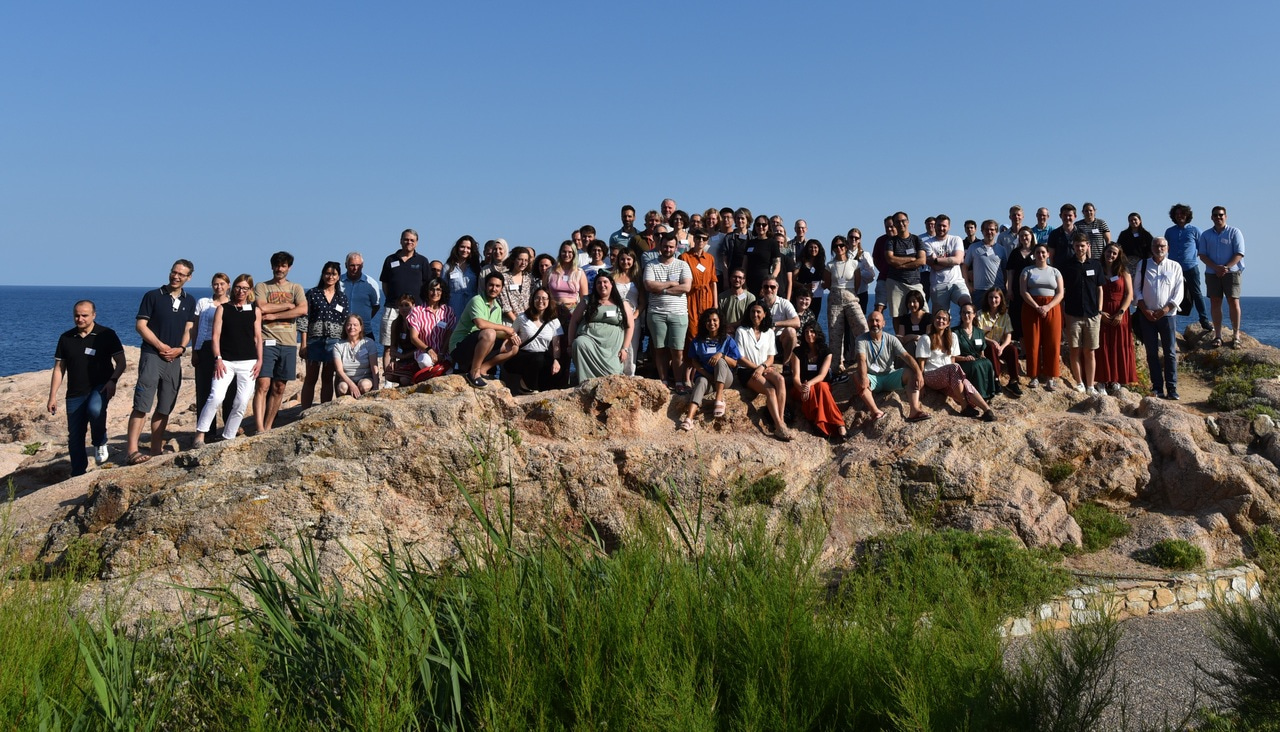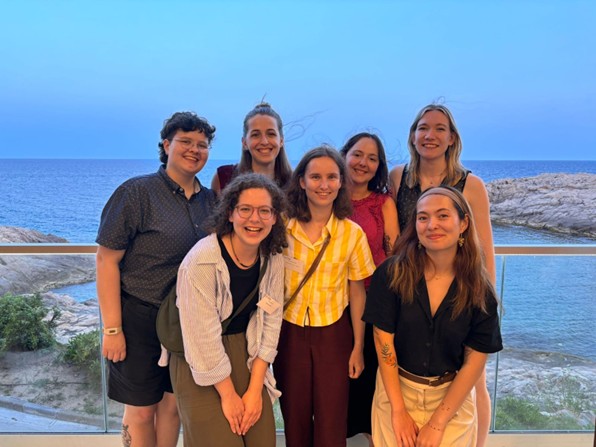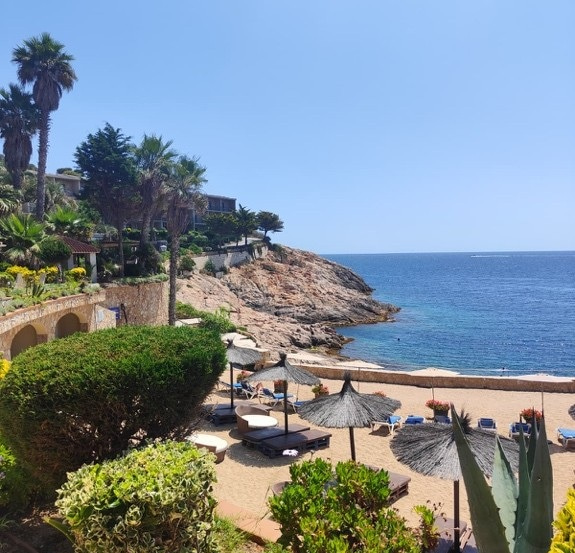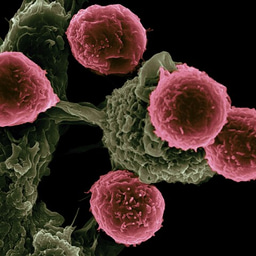Diving into my first international workshop (and into the sea)

Two months into a PhD is not when most people expect to attend their first international workshop. Yet there I was, suitcase in hand, heading off to spend a week immersed in the latest science on transcription, diverse eukaryotic models, and (apparently) much more!
As this was my very first international event, I had no idea what to expect. As a master's student, I had attended a few conferences in the Netherlands. However, my experience there could be described as seeing a sea of hundreds of people rushing between parallel sessions. Especially as a newcomer, it can be quite intimidating to mingle with scientists whom you don’t know, especially when they are much more experienced in the field than you are. During these bigger conferences, many participants seemed to stick with colleagues or acquaintances they already knew (or got to know via-via – a Dutch expression that means ‘through other people’). My experience at the FEBS Workshop ‘Conservation and Diversity of Gene Regulatory Mechanisms Across Eukaryotes’ (16–20 June 2025, Sant Feliu de Guixols, Spain), however, could not have been more different from this.
This FEBS Advanced Course was relatively small, which turned out to be a huge advantage. Instead of being swallowed by crowds or intimidated by groups who already knew each other, everyone seemed very open to meeting new people. This already started at the airport and the bus to the location. By the time the first session ended, I had already talked to numerous people that were all interested in what I was doing.
Since I had just started my PhD (with Tineke Lenstra at the Netherlands Cancer Institute), I had no results to present; I only had my plans and enthusiasm and basic knowledge of the transcriptional field. I was therefore worried that I might have little to contribute to the workshop. Yet, the atmosphere was remarkably supportive; (more) senior researchers took time to explain their work and encouraged questions, no matter how basic they might have seemed. Many people asked about my own project, with no judgement about its early stage and with genuine curiosity about where it might lead.
Meals played a surprisingly big role in this great experience. Sharing breakfast, lunch, and dinner meant there was always a chance to sit next to someone different; sometimes a fellow PhD student, sometimes a postdoc, and occasionally a principal investigator whose papers I had only just started reading. Because people naturally chose different spots at each meal, the seating changed constantly, and by the end of the week, I’d chatted with almost everyone at the conference. Conversations ranged from the latest discoveries in transcription regulation, to career tips, to shared hobbies. Over the course of a week, those informal chats helped turn names on name tags into real people with stories, passions, scientific ideas, and advice to share.
The program itself was quite packed with talks, poster sessions, and discussions over coffee breaks, and the science was both rich and varied. Talks spanned the latest findings in transcriptional dynamics, new methods in single-cell analysis, creative uses of diverse eukaryotic models, and much more (there was even a scientific performance on the guitar!). During the poster sessions, there was enough opportunity to get to know every project in as much detail as you liked, and also many opportunities to get feedback and tips for one’s projects.
In addition to the formal program, there was also enough time to take a swim in the sea, continuing conversations sparked by a presentation. We even started a swim club at sunrise to wake up together. Midweek, we took a trip to Gerona, exploring the city together before returning to the science. And lastly, a festive dinner brought everyone together one last time on the final night. The fact that everyone chose to stay up to the early hours (even after such a packed week) tells a lot about how much we had bonded over those few days.
By the end of the week, I left not only with a deeper understanding of the field but also with new connections and a sense of belonging in the scientific community. Attending this workshop so early in my PhD turned out to be the perfect way to start this new chapter of my life. I would love to come back to this workshop in a few years, to (hopefully) show how my plans have turned into results. But concerning results, this week really reminded me that science thrives not just on results, but on curiosity, conversation, and the willingness to share ideas.

Photo by Demi Blüm.

Mechanisms Across Eukaryotes’. Photo by Demi Blüm.
For more information about the FEBS Advanced Courses programme visit the FEBS website.
Top image provided by the organizers of the FEBS Workshop ‘Conservation and Diversity of Gene Regulatory Mechanisms Across Eukaryotes’.





Join the FEBS Network today
Joining the FEBS Network’s molecular life sciences community enables you to access special content on the site, present your profile, 'follow' contributors, 'comment' on and 'like' content, post your own content, and set up a tailored email digest for updates.